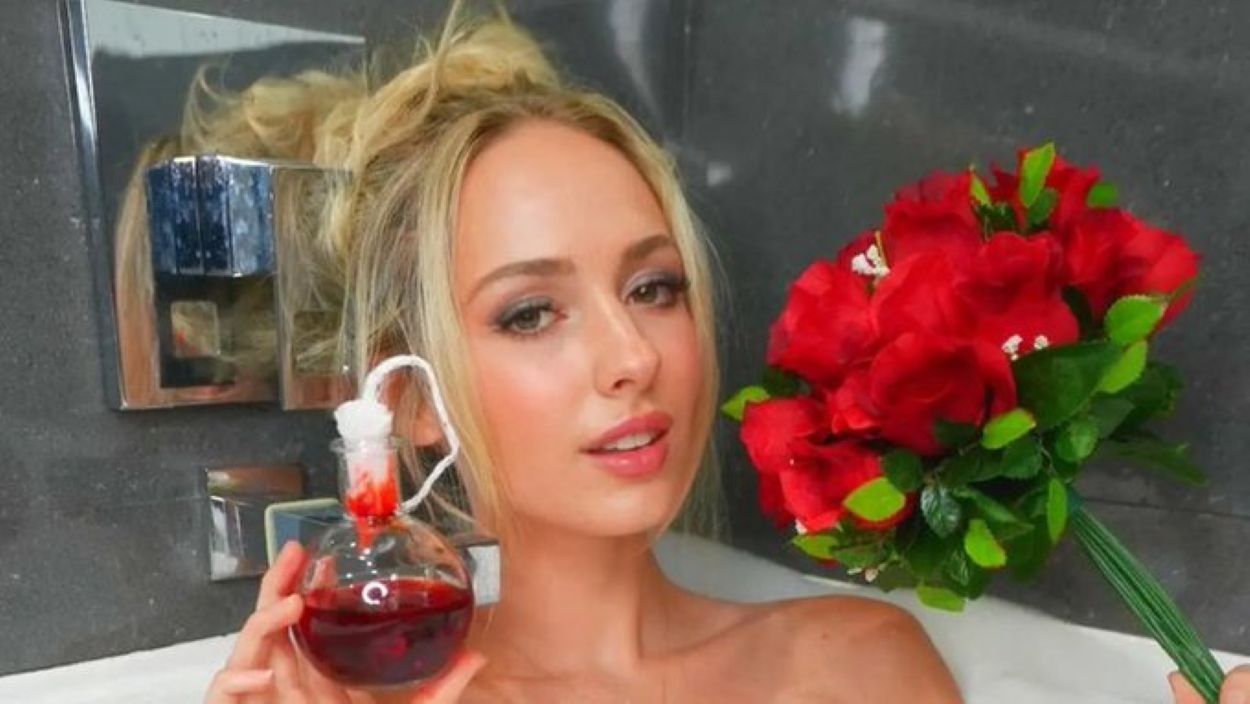Los Angeles: Hollywood actress Sydney Sweeney continues to expand her ventures beyond acting. The star, known for her roles in Euphoria and Anyone But You, made headlines earlier this year after launching a soap collection with Dr. Squatch, promoted as being made with her own bath water — a tongue-in-cheek marketing stunt that quickly went viral.
When criticised online, Sweeney responded with humour, posting:
“But they loved Jacob Elordi’s bath water.”
Now, OnlyFans creator Natalie Reynolds has followed a similar — and even more controversial — path. Reynolds, who boasts 5.5 million YouTube subscribers and over 2 million TikTok followers, recently introduced a new product called “Bloody Mary Bath Water.”
The product, priced at around €45 per bottle, was sold out within an hour of launch. Despite its dark red appearance, the product description clarifies that it does not contain real blood and is not approved by the U.S. Food and Drug Administration (FDA). The website also emphasises that it’s a satirical, non-consumable item.
Read: Sydney Sweeney Faces Backlash Over Bathwater Soap Comments
The product’s release sparked public criticism and speculation of a possible police investigation. Reynolds addressed the controversy in a video shared on OnlyFans, saying:
“I was in the bath and thought, why not share some of this water with my loyal fans? Now people are saying I should be arrested — and that the police are investigating me.”
The content creator claimed that her product was intended as a creative expression, not a scandal.
“The internet is trying to cancel me again, but I’m here to defend myself,” she said.
In a follow-up statement, Reynolds dismissed criticism, saying that people are overreacting out of jealousy.
“We all have bills to pay. I’m not hurting anyone. If people have something bad to say, it’s their problem, not mine,” she remarked.
The OnlyFans model described her project as both a business move and a form of art, explaining that her goal was to connect with fans through an unusual but symbolic product. While many have labelled the campaign as shocking marketing, others see it as a reflection of today’s digital creator economy, where personal branding often blurs the lines between art, humour, and controversy.






